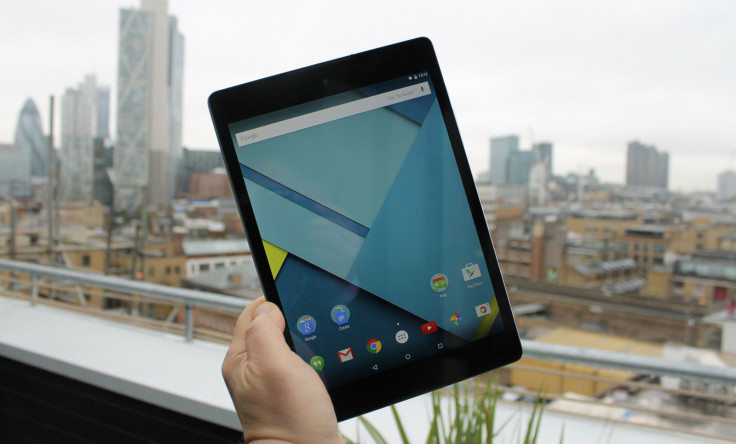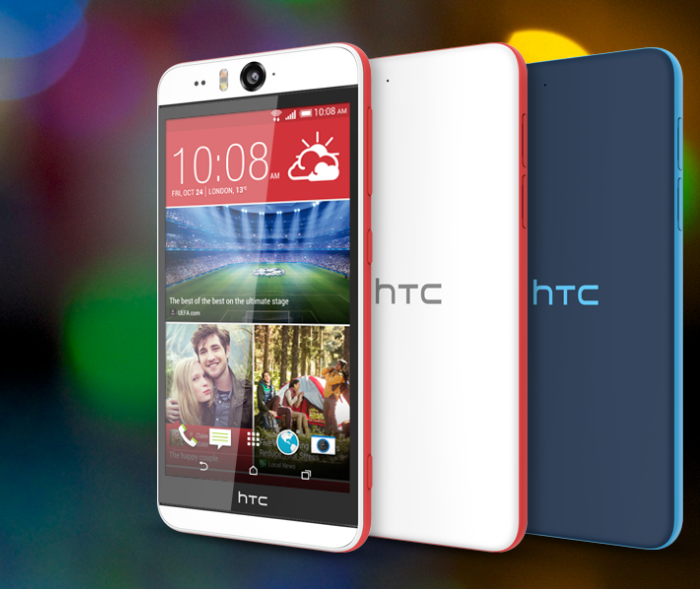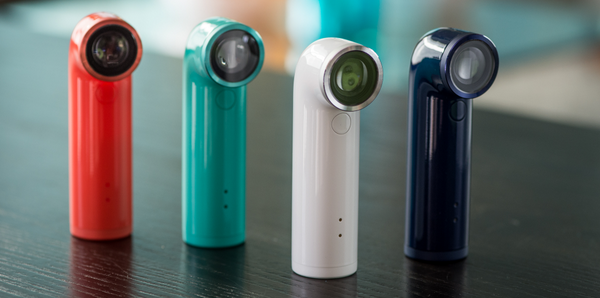HTC: Happy to Play the Waiting Game with Smartphone Strategy - Peter Frølund Interview
New HTC product categories coming in 2015

Trying to get original, new and interesting information from an executive at a major company is a tortuous game of cat-and-mouse in which you try to catch them off guard, but often end up frustrated and demoralised.
That was the challenge facing me when I met with Peter Frølund, the managing director of HTC in the UK who was speaking at an event where the press were being given a first look at the Nexus 9, HTC's first tablet in four years and one built in collaboration with Google.
I spoke to Frølund about was the state of the company, and with revenue continuing to fall, how long the company could survive in today's cutthroat smartphone market - but the one message came though loud and clear - HTC is not looking for a quick win, it is happy to play the long game, happy to rebuild its market share over years rather than go for a quick fix by slashing prices.
Playing the long game
And while the company slowly rebuilds its smartphone market share, it is also working on products which are not smartphones or tablets which it will launch in 2015 to "surprise and excite" people.
HTC reported financial results for the third quarter of 2013 last week, and while the $19 million (£11.9m) net profit it reported looks minuscule compared to the $5 billion profit that Apple made from its iPhones in the same period, when compared to the previous year it is a big positive for the Taiwanese company.
In the July to September quarter in 2013, HTC posted its first net loss since the company went public in 2002.
Patience
Frølund points out that HTC has been "profitable in Q2 and profitable in Q3" which in the smartphone industry at the moment isn't a given. "We have shown that some of the effort that we went through [previously] is now paying off."
The company makes a big deal about how its HTC One smartphone has been among the most awarded devices in the last couple of years, but this will be little comfort to shareholders if the company's revenue doesn't begin to grow again.
That growth won't come from drastic price cuts Frølund says, but from a long-term plan and a belief in what the company is doing:
"We are patient. It takes time to make everyone aware that we actually do great phones. From a brand perspective here in the UK we are definitely making progress, we can see that in all areas of what we are doing. We are building month by month a bit of market share in the UK even though it is a super-competitive market everyone wants to be successful here."
HTC's Desire to sell
HTC is looking to move beyond the focus on its premium HTC One smartphone and has relaunched the Desire range of more affordable phones which should help its market share.
Refraining from hyperbole (a trait usually lacking in these situations), Frølund says that the company's Desire 610 smartphone is "selling quite well". The company has also launched the Desire Eye with a high resolution camera on the front for taking selfies.

When asked if shareholders are happy to play the waiting game as the company recovers its lost footing in the smartphone market, Frølund says: "We are obviously here to make shareholders happy, we have got a plan on how to do that, and if you look at that from a UK perspective, one of the ways to build momentum in the UK is adding more products to our portfolio that is well recognised at point of sales."
What does that mean? Well, nothing really. It's PR-speak for: "We are launching more phones to sell more phones".
HTC Nexus 9
While smartphones remain the company's core business, and likely will be for many years to come, HTC has re-entered the tablet market four years after its Flyer failed to take off.
The tablet space is just as crowded as smartphones, and even given the collaboration with Google, HTC may struggle to find customers for the Nexus 9.
When asked about the new tablet, Frølund seems to suggest that the main reason for buying it is the BoomSound speakers which the company developed for its HTC One smartphones.
If you are using a tablet for entertainment such as "gaming, watching movies, would it be more or less a number one requirement to have a great sound experience. So we are known and recognised for having the best sound experience on a mobile phone today, so why wouldn't we take that technology and bring that to a tablet."
I don't know about anyone else, but speaker quality is not the number one feature I look for when deciding what tablet to buy.
Exciting and surprising
The Nexus 9 could be a one-off but the company is looking beyond smartphones and tablets by developing unknown products for launch in 2015.
"You will see more things coming from HTC which are not a phone. We have not been more specific about that but that gives us a lot of opportunity to surprise people and hopefully also to excite people."
Frølund adds that the company doesn't "want to walk in anybody else's footsteps" so guessing what HTC is developing is difficult.

The company previously said it was working on a smartwatch which would be on sale before the end of 2014, but that plan has now been shelved and it's unclear if HTC will ever launch a smartwatch.
The first of these "new products" has already been launched however, with the Re camera (right), a handheld camera in the shape of a periscope which HTC says frees users up to enjoy their moment while still capturing it for posterity.
How many Re cameras the company will sell is difficult to gauge but whatever revenue this and the other products in development generate, if the company is to grow the first thing it will need to get in order is its smartphone strategy.
Being patient and trying to build something up over a long period of time is admirable, but with small-and-nimble company's such as China's Xiaomi ready to aggressively grab market share at the low-end, while Apple continues to dominate the high-end, it is hard to see how HTC can survive for much longer.
© Copyright IBTimes 2025. All rights reserved.






















